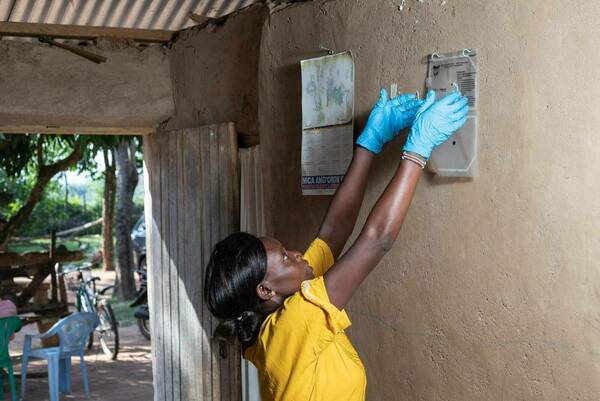Fighting poverty: Research helping our communities
Notre Dame’s Lab for Economic Opportunities (LEO) is using research to fight poverty in a way that makes a real impact.
This podcast episode features Heather Reynolds, managing director of the Notre Dame Poverty Initiative and the Michael L. Smith Managing Director of the Wilson Sheehan Lab for Economic Opportunities (LEO), who shares how Notre Dame’s research has shaped policy changes—such as expanding access to high school diplomas for adults—and helped nonprofits implement programs that truly work. With more than 100 projects in 30 states, LEO’s evidence-based approach is cutting through political divides to create solutions that lift people out of poverty.
We’re also joined by Tracy Kijewski-Correa, the William J. Pulte Director of the Keough School’s Pulte Institute for Global Development. She discusses how her experiences—from being a first-generation student at Notre Dame to leading post-disaster rebuilding efforts—have shaped her work in helping communities build resilience. She also explains how the Keough School’s approach to poverty extends beyond economic hardship, addressing social, psychological, and environmental challenges to foster true human flourishing.
By collaborating with policymakers, local leaders, and global networks, Notre Dame is bridging the gap between poverty research and real-world impact. Listen to the full episode of Notre Dame Stories to learn how Notre Dame is driving change—and why this work matters.
Originally published by at news.nd.edu on March 24, 2025.
Latest Research
- NSF Cyber SMART’s fall meeting shapes fifth year of project, legacy and future plans, and adds new memberThe U.S. National Science Foundation (NSF) Cyber SMART center gathered for its fall meeting on the University of Notre Dame campus this September. The meeting served as a checkpoint with progress reports and new projects from research leads and students…
- Slavic and Eurasian studies professor wins Humboldt fellowship to research how Russia’s religious past shapes its presentWhen Russia invaded Ukraine on Feb. 24, 2022, Sean Griffin realized his second book needed a new title. Griffin, an associate professor in the University of Notre Dame’s Department of…
- Notre Dame’s R.I.S.E. AI Conference builds interdisciplinary collaboration to inform human-centered artificial intelligenceAs artificial intelligence (AI) transforms nearly every sector of society — from healthcare and education to governance and global development — a critical question emerges: How can we conscientiously design and deploy these powerful technologies to positively impact society? This…
- University of Notre Dame joins the Global Coalition of Ukrainian StudiesThe University of Notre Dame has joined the Global Coalition of Ukrainian Studies after signing a Memorandum of Cooperation (MOC), formalized on September 24, 2025, at the Ukrainian Institute of America in New York City. Notre Dame joined four other American…
- The University of Notre Dame’s Mendoza College of Business and Industry Labs team up to inspire national security manufacturing competitiveness in the regionThe South Bend - Elkhart Region is full of manufacturing companies that are poised to grow, and Executive Master of Business Administration (EMBA) and Master of Business Administration (MBA) students at the University of Notre Dame are finding innovative ways to contribute to that growth. Earlier…
- Notre Dame research informs WHO conditional recommendation for spatial repellents in malaria vector controlThe World Health Organization (WHO) recently announced a “conditional recommendation” for spatial emanators, also known as “spatial repellents,” in the fight against malaria. This key determination was informed by spatial repellent studies that included the Advancing Evidence for the Global Implementation of Spatial Repellents (AEGIS) Project in Kenya, led by the University of Notre Dame and funded by Unitaid. The findings from this particular study were recently published in The Lancet.












